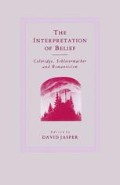Abstract
The Puritan mind, influenced by John Locke and the Scottish institutionists, dominated the religious scene in America for well over 200 years. From Thomas Hooker, ‘that great physician of the soul and a veritable doctor of the church’, who led New England Puritanism in the seventeenth century, to the Yale divine Nathaniel Taylor, a strong and vocal Neocalvinist of the early nineteenth century, Puritan sensibilities were firmly established in the theological pursuits of the American intelligentsia. While Anglicans, Baptists, Lutherans and Quakers early on established religious communities in America, Sydney Ahlstrom points out that even as late as 1775 ‘the Puritans comprised seventy-five percent of the religious population in the United States’. With characteristic religious zeal and intellectual vigour, Puritanism established itself as a formidable foe to any religious or philosophical movement that threatened its spiritual tenets. Unitarianism posed little threat because the movement had too few converts until the nineteenth century. And, with surprising adaptability, the Puritans, who had always tended to emphasise an element of rationalism in their theological doctrines, incorporated many ideas of the Enlightenment into their own religious beliefs.
Access this chapter
Tax calculation will be finalised at checkout
Purchases are for personal use only
Preview
Unable to display preview. Download preview PDF.
Notes
Theology in America, ed. Sydney Ahlstrom (Indianapolis, 1967) p. 149.
H. Shelton Smith, Robert T. Handy and Lefferts A. Loetscher, American Christianity: An Historical Interpretation with Representative Documents, I (New York, 1960) 340.
Donald Vale Wells, Three Christian Transcendentalists: James Marsh, Caleb Sprague Henry, Frederic Henry Hedge (New York, 1972) pp. 146–7.
Coleridge, Aids to Reflection, with preliminary essay by James Marsh, 4th edn (London, 1913) p. xxiv. Further references in text.
Editor information
Editors and Affiliations
Copyright information
© 1986 David Jasper
About this chapter
Cite this chapter
Ledbetter, T.M. (1986). Changing Sensibilities: the Puritan Mind and the Romantic Revolution in Early American Religious Thought. In: Jasper, D. (eds) The Interpretation of Belief. Palgrave Macmillan, London. https://doi.org/10.1007/978-1-349-18333-3_11
Download citation
DOI: https://doi.org/10.1007/978-1-349-18333-3_11
Publisher Name: Palgrave Macmillan, London
Print ISBN: 978-1-349-18335-7
Online ISBN: 978-1-349-18333-3
eBook Packages: Palgrave Literature & Performing Arts CollectionLiterature, Cultural and Media Studies (R0)

